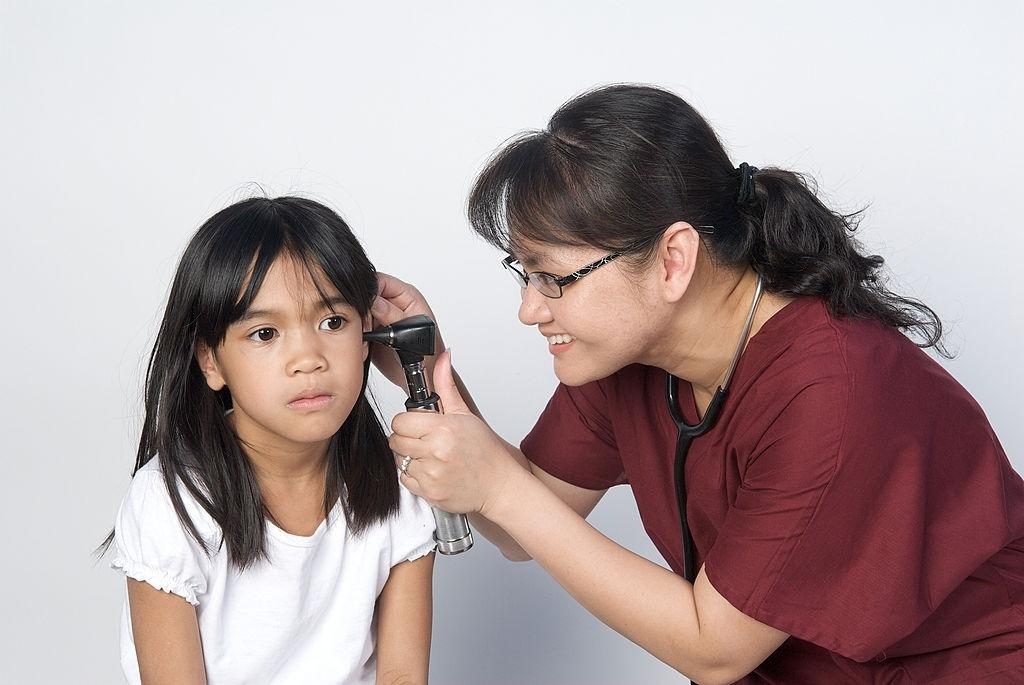Ear infections can occur due to allergies and will act the same way as an illness caused by a virus or bacteria.
Ear infections are typical of kids as well as adults. Ear infections usually occur around the middle ear when fluid is trapped in the small space behind the eardrum. The buildup of this fluid is what leads to infection, pain, and other symptoms.
Sometimes, ear infections will clear up on their own. And the condition may only be treated by managing pain and monitoring other problems.
Other times, antibiotics will be needed to treat ear infections. People who are prone to having multiple ear problems can suffer from hearing issues and other serious complications. Therefore, take seriously any sign or symptom of ear infection.
Signs or symptoms of a middle ear infection may include:
- Swelling
- Redness of the eardrum
- Fever
- Drainage from the ear
- The feeling of fullness in the middle ear
- Ear pain in one or both ears
- Hearing loss
- Sore throat
- Popping or crackling sounds in the ears
- Affected balance (in rare cases)
Sometimes, nasal allergies or allergic rhinitis can cause severe pains and discomfort in the ear. Allergies also cause congestion in the sinuses and ear canals.
When allergens get into the body, the body mistakes it as a harmful substance and tries to fight back by releasing chemicals such as histamine, which irritates the nose, eyes, and throat.
As the body reacts to this irritation, the sinuses can become swollen and fluid build-up. This, in turn, results in pains and infection in the ear.
Allergy Treatment
If you experience ear pain or infection due to allergy, treating the allergy will help to provide relief from the pain.
The first step is to discover which allergens are causing the pain. Once you know which allergens are causing you problems, take active steps to avoid them.
If you are allergic to dust mites, your living space should always be clean and well-ventilated. Or, if you are allergic to pollen, limit the time you spend outdoors when the pollen count is high.
Your doctor may prescribe certain medications to treat allergies. These may include:
- nasal corticosteroid sprays
- nasal antihistamine sprays
- antihistamine tablets
- decongestant tablets
Taking allergy medication precisely as prescribed, can help relieve uncomfortable symptoms, including ear pain.
Ear Infection Treatment Due to Allergies
When you visit an ENT clinic, your ENT specialist will diagnose your condition via a physical examination and testing.
The doctor will look inside your ear to check if there is any buildup of fluid or pus. He will also check to see if your eardrum moves around or is stationary.
In some cases, an audiogram may be performed, as well as a hearing test to check if there’s any loss due to an infection. A tympanogram can also be performed to check the pressure of air in the ear and to see if the tube is working correctly.
If Otitis Media as a result of allergies reoccurs, the ENT specialist may opt to drain the pus or fluid. The procedure isn’t a big deal because very small tubes are needed to drain the fluid.
In some cases, the specialist may decide that both of your tonsils or adenoids need to be removed if they’re the cause of the reoccurring ear infections.
Otitis Media or other ear infections can be severe and can occur in one or both ears at the same time.
Therefore, it is vital to seek medical attention if you have any infection due to allergies because it can result in a hearing loss or other serious complications.
Visit our nearest branches in Shah Alam, Johor Bahru and Melaka and talk to our ENT specialists when the first sign arises.
For more information, feel free to get in touch with us.



